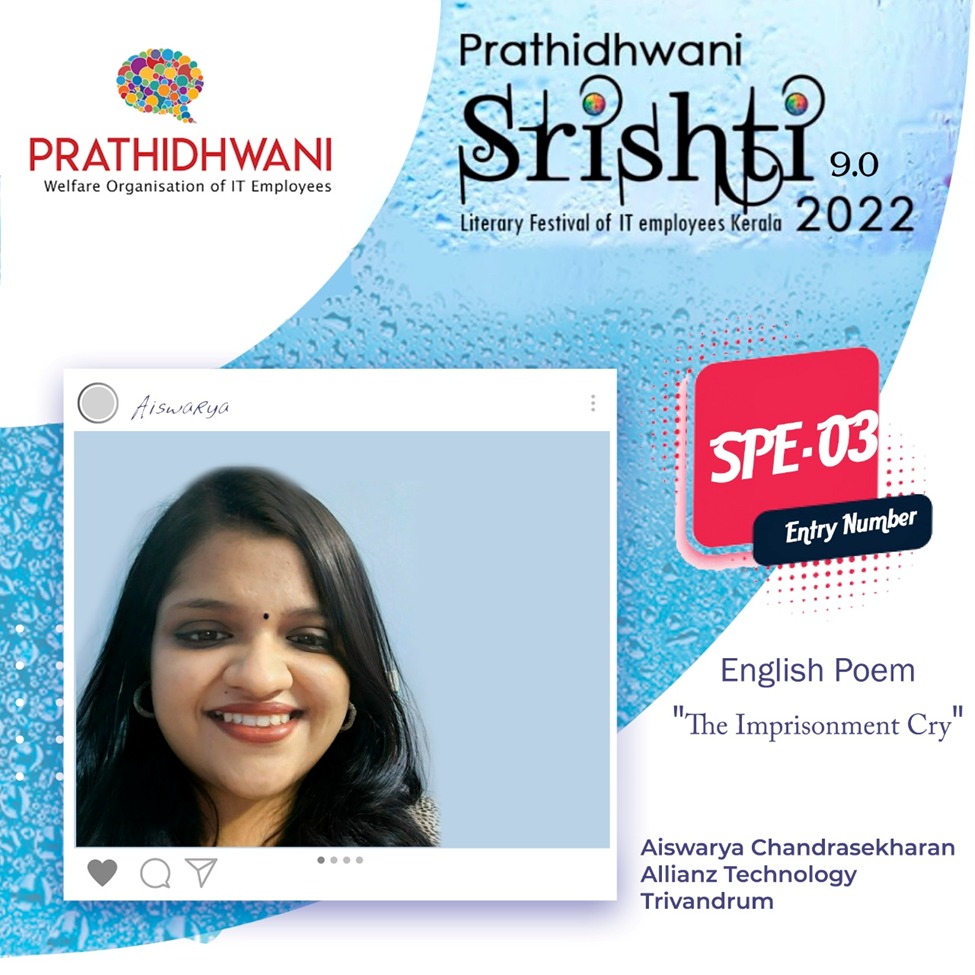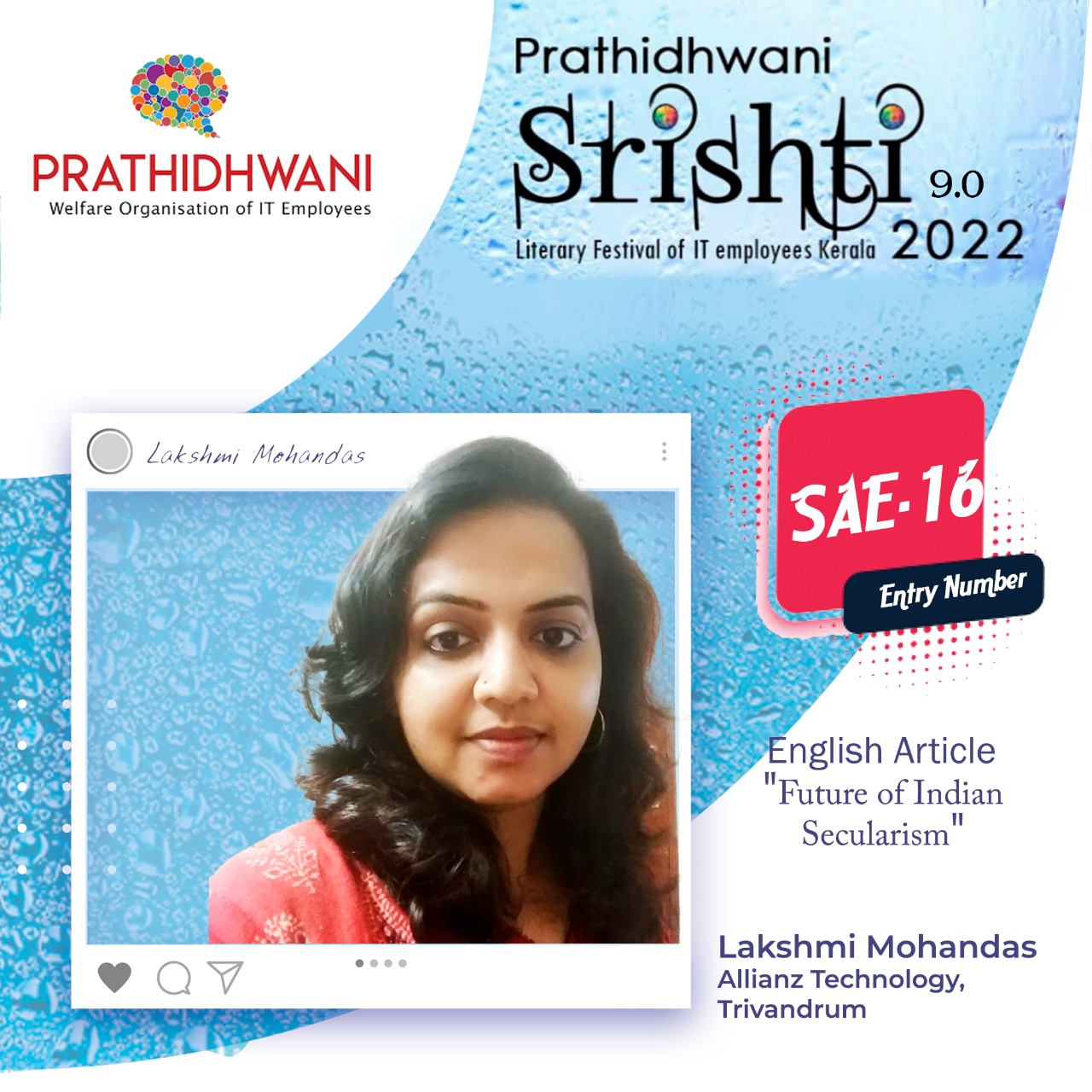“Soul of India lies in plurality and tolerance. This plurality came with assimilation of ideas over centuries. Secularism is a matter of faith for us” -- Pranab Mukherjee
Secularism means separation of religion from political, economic, social and cultural aspects of life, religion being treated as a purely personal matter. It emphasized dissociation of the state from religion and full freedom to all religions and tolerance of all religions. It also stands for equal opportunities for followers of all religions, and no discrimination and partiality on grounds of religion. A secular person is one who does not owe his moral values to any religion. His values are the product of his rational and scientific thinking.
Origin of secularism
According to modern literature secularism has its origin in western countries and it is related to the separation of the church from the state, which gives the state a position of neutrality between different religions, while at the same time, it guarantees all citizens right to adhere any religion. G.H. Holyoake has been regarded as the originator of the concept of secularism because of his important work such as, ‘Principles of Secularism’ and ‘The Origin and Nature of Secularism’. A secular state as defined scientifically, means a state which recognizes every citizen as equal and does not recognize any social or religious stratification for any political benefit. But what is generally projected as secularism is tolerance of all religions with special emphasis on the protection of minorities and preservation of communal harmony.
Evolution of secularism in India
Secularism in India does not mean does not mean irreligion. It means respect, regard, and pride for all the religions. There will be no priority of any religion. All the religion will get equal treatment irrespective of its priority. The states have not own its religion. India being a secular, there is no state or favored religion and state will have to follow constitution as a religion that gives equal status to all the religions exiting as such. In society secularism shows that there is no priority of any particular religion. Here religious supremacy never led to discrimination and prosecution of religious minorities.
History says, emperor Ashoka was the first great emperor to announce, as early as third century B.C. that, the state would not prosecute any religious sections. In medieval India the Sufi and Bhakti movements bond the people of various communities together with love and peace. The Mughal emperor the great Akbar also to a great extent promoted the policy of toleration of different religions. His propagation of Din-e-Illahi (Divine faith) and Sulh-e-kul (Peace with all) were highly inspired by the spirit of secularism.
The spirit of secularism was strengthened and enriched through the Indian freedom movement too. The constitution drafted by Pandit Moti Lal Nehru as the chairman of the historic Nehru Committee in 1928, had the following provision on secularism as, ‘There shall be no state religion for the commonwealth of India or for any province in the commonwealth, nor shall the state, either directly or indirectly, endow any religion any preference or impose any disability on account of religious beliefs or religious status’. The principal advocates of secular ideology in modern India were Mahatma Gandhiji and Pandit Jawahar Lal Nehru. Gandhiji’s secularism was based on a commitment to the brotherhood of religious communities based on their respect for and pursuit of truth. Whereas, Pandit J. L. Nehru’s secularism was based on a commitment to scientific humanism tinged with a progressive view of historical change.
Pandit Jawaharlal Nehru has been a leading champion of the concept of the secular state. The creation of India as a secular state has been accepted as one of his greatest achievements. Moreover he was especially concerned with transforming India from a ‘caste ridden society’ in which communalism constitutes a major threat to all the values that he cherished to a ‘national state’ which includes people of all religions and shades of opinion and is essentially secular as a state
Secularism in Indian constitution
Secularism as a principle is that religion cannot be a basis for discrimination of citizens. This is incorporated in Indian constitution through various provisions like
Preamble promising secular state
Right to equality(Articles 14, 15,16)
Right to religious freedom(Articles 25,26,27,28)
No religious restrictions for any secular executive posts like President, Vice president etc.
Principled distance to all religions is a unique feature of Indian secularism.
Critical respect for all religions. Criticality ensures that practices which do not promote social equality, liberty and fraternity are not tolerated.
Intervention when needed to promote constitutional values. Untouchability abolition, Triple Talaq abolition are examples. But such intervention cannot be discriminatory.
Constitutional secularism needs collective action from all stakeholders – Judiciary, civil society, media and citizens.
Advent of party-political secularism
Party-political secularism, born around 40 years ago, is a despicable doctrine practiced by all political parties, including by so-called ‘secular forces’. This secularism has dispelled all values from the core idea and replaced them with opportunism. Opportunistic distance , but mainly opportunistic alliance with religious communities, particularly for the sake of immediate electoral benefit, is its unspoken slogan.
Indifferent to freedom and equality-based religious reform, it has removed critical from the term ‘critical respect’ and bizarrely interpreted ‘respect’ to mean cutting deals with aggressive or orthodox sections of religious groups — unlocking the Babri Masjid/Ram temple for puja, and forsaking women’s rights in the Shah Bano case. It has even been complicit in igniting communal violence. This party-political ‘secular’ state, cozying up alternately to the fanatical fringe of the minority and the majority, was readymade for takeover by a majoritarian party. This was accomplished by removing the word ‘all’ and replacing it by ‘majority’: respect only the majority religion; never criticize it, but recklessly demonize others; and ridding the state of the corrupt practice of opportunistic distance not by restoring principled distance but magically abolishing distance altogether. This is untrammeled majoritarianism masquerading as secularism, one that opposes ‘pseudo-secularism’ without examining its own equally unethical practices.
When politics becomes a threat to secularism
In the current political scenario, its undoubtful that religion/caste is a strong weapon to win the electoral poll. Political parties patronize religion on the basis of their majority in the society. Its evident that caste can influence the results of the election. Political parties formulate policies on the basis of caste ,most of the time to gain the political status and votes. There is a strong relationship between caste and politics. In this relationship, it is not only politics that is impacting the caste, there is a clear reverse impact as well.
Democracy and casteism therefore opposes each other. The democratization process will transport new power from the marginalized communities. People want empowerment and want their voices to be listened. The political leaders will have to democratize themselves and try their best to fulfill the basic needs of the common man. Article 325 of Indian constitution clearly states that there should not be votes on the basis of religion. Everyone has equal voting rights. Representation of people act 1951 article 123(3) says that if any candidate appeals to cast vote, on the basis of religion and if it proven at the court of law, then their election will be declared invalid. This act is framed to ensure that no one is going to vote on the basis of the religions. Therefore the restriction that an act says should be effectively utilized. So, that Indian democracy further prosper and equality and secularism is maintained.
What is to be done?
What then must be expected from real, genuine secularism? Justice to all citizens, affirmation of all reasonable religious identities, rejection of majority communalism, careful defence of legitimate minority rights only when accompanied by a robust critique of minority extremism, and a critical appraisal of religions with a deeper, empathetic grasp of their traditions. The government’s primary business is to prevent religion-based violence, oppression and discrimination. Perhaps, those outside the government should attend to its other functions. Together, we may just rescue our genuine secularism.
Few suggestions to bring up India’s pluralistic tradition of social harmony that will ensure constitutional secularism are
Promote socially driven secularism movements instead of the current politically driven ones
Gender and caste based oppression must be addressed in all religions. This was the objective of 19th century socio-religious movements and must be pursued now.
Reform must come from within for effectiveness. Sole outside critique will not yield results when communities perceive it as threat to their way of life.
I must agree these are easier said that done solutions especially when we have political parties and authorities with strict agendas trying to create unrest within the society and reap benefits out of it. But any change should start from within . India as a nation have shown tremendous growth and evolution in many aspects and been raised to the position of the one of prominent nations in the world. If we take a little effort to educate ourselves and be aware of the selfish political agendas ,it will be the beginning of a big change. It will surely give breathing space for evolving new forms of socio-religious tolerance which promote secularism and inclusion which are the true essence of Indian democracy.





